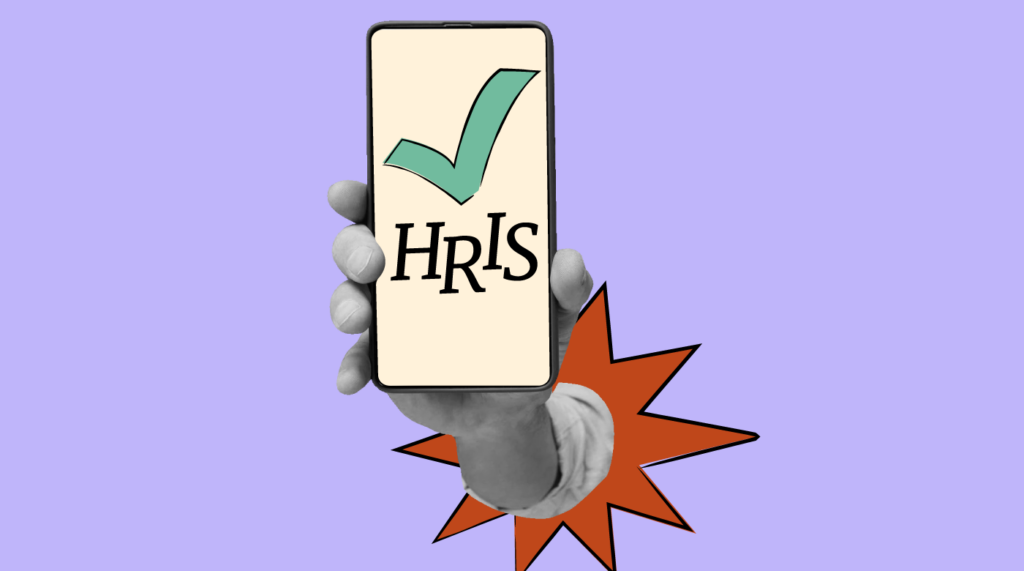You’ve heard about HRIS software, but you’re not sure exactly what it is or if it’s worth the investment.
Read on to learn all about the functions and benefits of an HRIS and how you can become HRIS certified.
What Is A Human Resources Information System?
A human resources information system, or HRIS, is software used by HR professionals to manage employee data. It provides streamlined information in one centralized location and removes the need for multiple spreadsheets, databases, and paperwork overload.
HRIS’s benefit human resource teams by providing:
- Recruitment data
- Applicant tracking
- Benefit management
- Training records
- HR reports
- Time-keeping
- Remote schedule management
The ability to access employee data in one central location saves your business valuable time and energy.
Your HR team will no longer be juggling competing systems to track various aspects of employee data. Instead, the newfound organization from HRIS will give them more time to focus on their jobs and ultimately increase productivity and decrease burnout.
There are four types of HRIS you should be familiar with:
- Operational HRIS - used to collect and report valuable employee information, like demographics, job classifications, and position titles.
- Tactical HRIS - helps managers make big-picture decisions when it comes to recruitment, resources, job analyses, and training and development.
- Strategic HRIS - focuses on future workforce planning and where the organization is going. This type helps with long-term goals like new office space construction, or new products to be added.
- Comprehensive HRIS - allows for a streamlined database to provide easy review of various aspects of HR requirements, like HR files, employee data files, and job analyses files.
You can check out a detailed breakdown of the 4 Major Types of HRIS here.
Depending on your business needs, an HRIS act like swiss army knives and can function as:
- Applicant tracking systems (ATS) to help the hiring process
- HCM (human capital management)
- Benefits administration software to manage employee benefits
- Payroll management tool for compensation management
- Tools to manage talent or manage employees
- Workflow, scheduling, or resourcing tool.
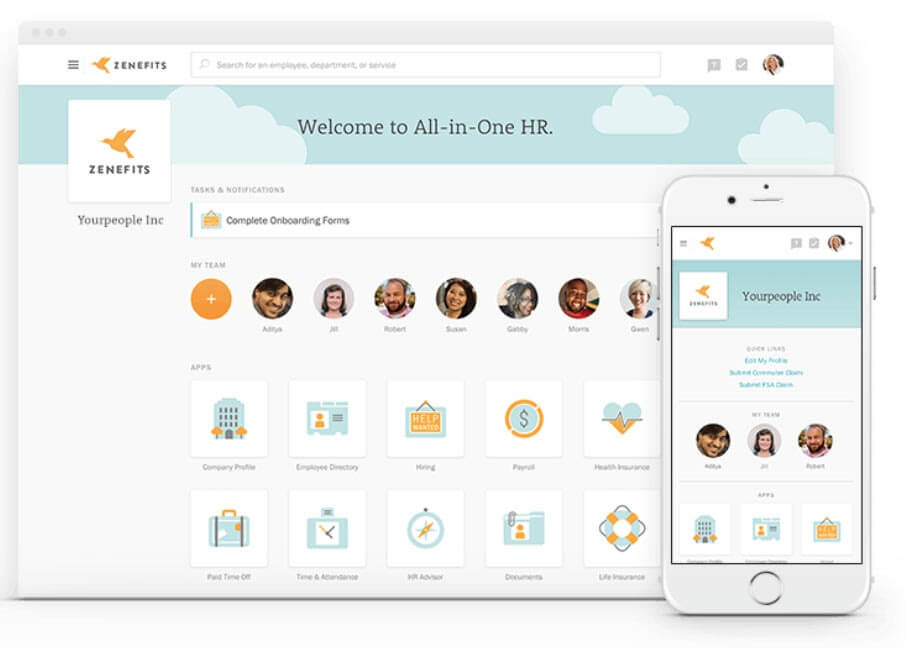
7 Key HRIS Functions
HRIS software manages all HR needs and includes multiple user tools. Let’s take a look at 7 functions an HRIS system manages and how it can benefit your business:
1. CORE HR
Core HR refers to the basic functions carried out by the HR department related to employee information, like:
- Demographics
- History
- Job-role details
- Tax-withholdings
- Time management
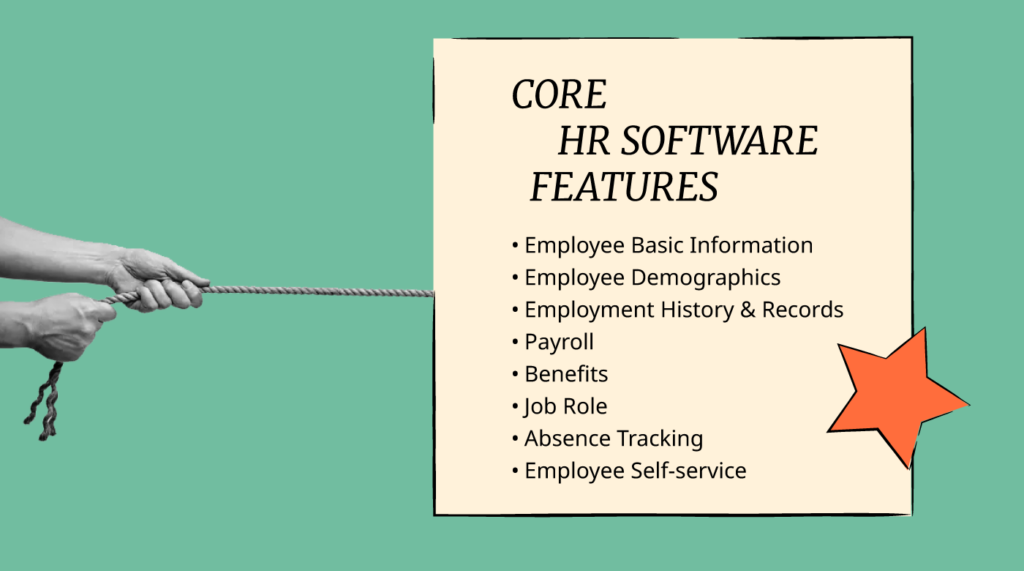
HR professionals save time when all employee information is stored in one streamlined location (your HR database), and even more time with the enablement of employee self-service (employees can update their own info, book holidays, etc).
An HRIS analyst (more on this later) can run various reports to give insights to project management, business trends, and future needs by analyzing CORE HR data like employee training history, job-role requirements, and planned leave.
2. Payroll
HRIS management software automates your employee’s pay schedules and stores time and attendance data. This automation allows staff to enter their own leave information that’s later approved by a supervisor – saving you valuable time to focus on other needs in your business.
Take a look at this example of an HRIS system payroll tool:
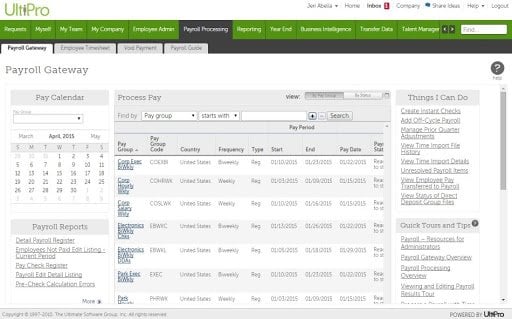
This tool enables you to group together who’s being paid on what schedule and allows for easy search capability. Notice the “Things I Can Do” section on the right – this quick-access menu serves as a reminder of things to be done and saves time with easy-to-use system links.
3. Employee Benefits
HRIS software provides self-service options for employees to review their benefits information and streamlines open enrollment periods. Employees have the ability to make approved changes to their benefit information when life changes occur.
This function also allows employees to look up benefit information when they have questions about things like:
- Medical coverage
- Life Insurance
- Disability benefits
- Dependent benefit information
HRIS self-sufficiency among employees saves your HR team crucial time. Now instead of being responsible for fielding inquiries and researching information for individual employees, HR professionals can focus their time on more strategic tasks.
4. Training
HRIS training modules help your HR department track your employees’ qualifications, certifications, and skills.
HRIS training functions also allow for quick distribution of updated policies and procedures. Plus, it can be integrated with an LMS (Learning Management System) to streamline available training and transcripts into one easily accessible location.
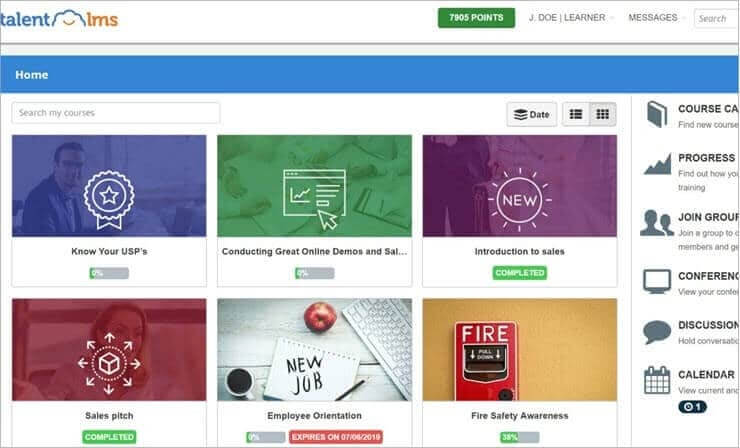
This integrated LMS system allows employees to review what training is available, keep track of their progress, and search available course options.
5. Performance Management
Performance management needs like goal-setting, developmental and training needs, self-assessments, and anonymous surveys are all options available through an HRIS. These features allow employees to complete training and surveys remotely. This encourages increased participation since staff are able to respond from the comfort of their own homes.
While it’s important to have engaged evaluation meetings with your staff, some areas of performance evaluations can be completed by an employee on their own – an effective way to encourage honest reflection and increased participation. Plus, this saves you time and streamlines the process.
For a more comprehensive approach to human resource management, explore our curated list of HR software platforms that can seamlessly integrate with your HRIS.
6. Time Tracking and Leave
HRIS software allows for easy and accurate time tracking and tracking the amount of leave taken. It also saves time for both employees and supervisors – with the click of a button, hours are captured.
This function allows for additional self-sufficiency. Staff enter their own leave requests and time is saved by reducing the need for emailing back and forth, making phone calls, and fielding in-person requests.
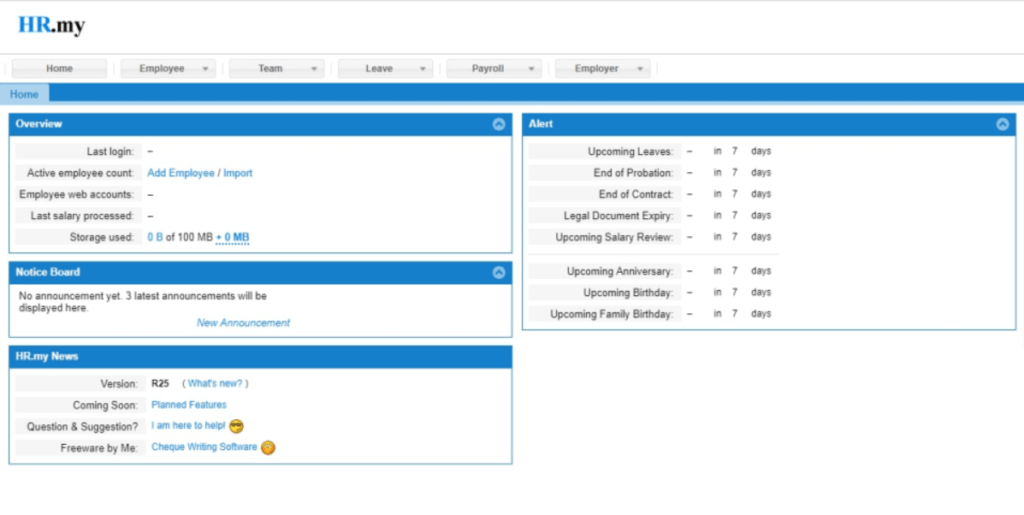
7. Onboarding
It’s no secret that onboarding is crucial for the success of both a new employee and the organization itself. HRIS implementation is a game-changer when it comes to onboarding because it allows you to:
- Reach large candidate pools when job openings occur
- Apply selection standards to applications received
- Track candidate information and resumes
- Allows HR analysts to match a job opening with suitable candidates from an application pool
- Process new hires quickly through mobile accessibility,
This makes HRIS software especially beneficial for companies with high turnover rates because you can improve your hiring practices and expectations of employee standards without having to invest a lot of time and resources.
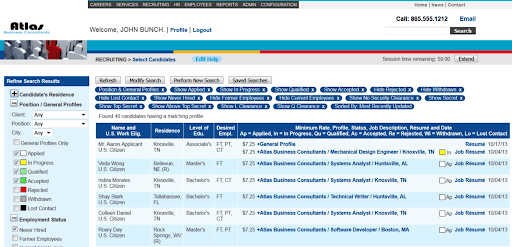
HRIS software has the ability to manage other HR needs as well, such as:
- Safety
- Performance and Goal Measures
- Learning and Development
- Succession Planning
- Talent Management.
What About HRIS Certification?
HRIS Certification is an option for HR professionals looking to take their expertise to the next level.
How Do I Become HRIS Certified?
There are no prerequisites to take the HR certification exam – while it’s recommended you have five years experience working in HR technology, it’s not required.
You can be HRIS certified by taking a ninety-minute, multiple-choice exam. The exam covers technology strategy, assessment, selection, implementation, operations, upgrades, and HR processes.
The International Association of Human Resources Information (IHRIM) provides certification in the Human Resources Information Program (HRIP). It covers all areas of HRIM/HRIS such as:
- Technology
- Functions
- Best Practices
- New and Updated Trends.
In order to maintain certification, a total of 60 recertification credit hours are required during the 3-year period – you’ll be responsible for keeping a log of credit hours completed through options like IHRIM recertification courses and webinars.
Read more about the why and how of HRIS certifications here. And here's A Comprehensive Guide To HRIS Certifications to help you figure out which ones you should consider taking for your career.
4 Reasons You Should Consider HRIS Certification
IHRIM.org notes four reasons a certification in HRIS helps you as an HR Professional:
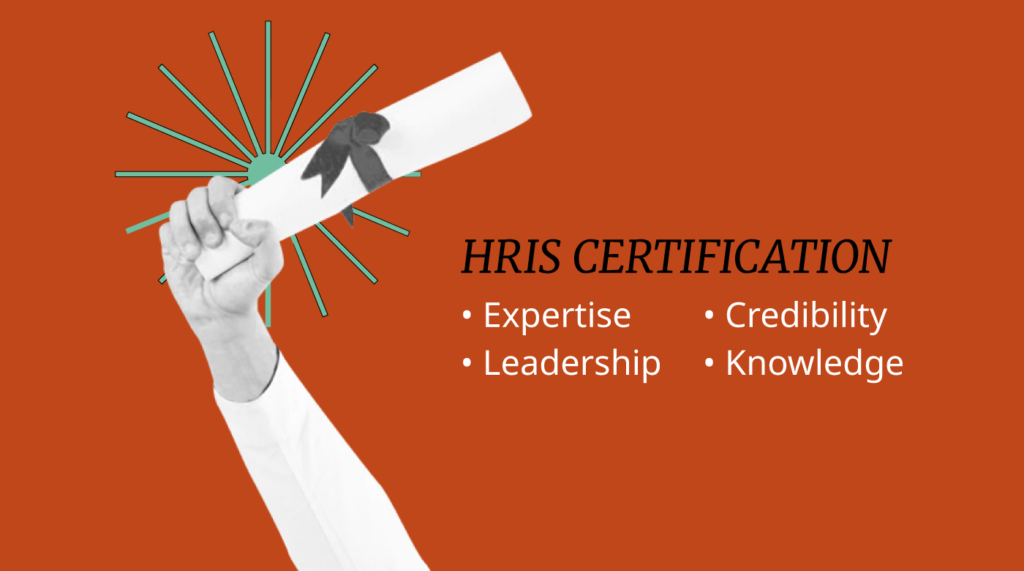
- Expertise – HRIP certification is a concrete measure of your experience and ability to utilize HRIS concepts and processes. It shows you’re familiar with the aspects of the system, and you know what you’re doing.
- Credibility – HRIS designation tells clients and employers that you’re motivated to stay knowledgeable and up-to-date in the HR field. It’s an indicator of your motivation to be the best you can be in your field.
- Leadership – Certification shows you stay current in your work practices and promote high standards in the HRIS field. It shows your initiative to learn, grow, and be better in what you do.
- Knowledge – When you prepare for certification, you review all aspects of HRIS, including the latest trends and best practices. You’ll be exposed to facts you didn’t know before, and you’ll brush up on some HRIS knowledge you may have forgotten. Plus, the recertification requirements ensure that you stay on top of changes in the field as they occur.
Next Steps
HRIS solutions provide options based on specific needs of your business – remember, what’s best for your company might not be best for your neighbor or your competition. You'll want to consider questions like
- How many employees do you have?
- What are your HR needs?
- What are your plans for growth?
- What’s your available budget?
To learn more about the benefits of an HRIS click here, and to know more about how to choose the right HRIS system for your business, check out 10 Best Online HRIS Systems.
Need expert help selecting the right Human Resources (HR) Software?
If you’re struggling to choose the right software, let us help you. Just share your needs in the form below and you’ll get free access to our dedicated software advisors who match and connect you with the best vendors for your needs.
Join Our Community Of People Managers & Culture Creators
The People Managing People blog, podcast, and community exists to help you become a better leader of people and catalyst for healthy company culture. Our community is a space for experienced people managers and culture creators to develop as leaders and connect with other like-minded individuals.
Learn more about the People Managing People community here.
You can also subscribe to the newsletter to get updates when we publish fresh articles and podcasts with the latest thinking in HR from leadership and management experts from around the world.
Related Read: 10 Best HRIS Systems

